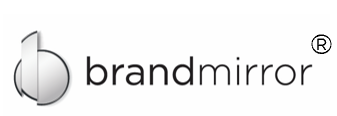Recently I participated on a panel at a Reston Chamber Young Professionals event focused on personal branding and how to build your presence online. The audience was fantastic and we shared a great dialog on the rules of engagement and etiquette online. These five rules came up in the discussion and it seemed worth repeating.
Don’t Ask for a Job Out of the Gate
Everyone is nervous about getting a job when they need one. The reality is that even should you hit it off at a networking event with a potential connection at a company you are interested in – one should never reach out and ask for a job out of the gate. Sometimes this seems innocuous, you just want to share your resume, however, this is a big no-no, unless they ask for your resume. If you happen to reach out to someone you have not met in person it is even more important to connect with a personalized request and provide something of value (an article, etc.) before asking for anything in return, much less a job.
Tip: A better approach might be to do informational interviews and learn about how companies perceive and leverage the role you might be interested in pursuing.
Don’t Over Tag People in Your Network
It never ceases to amaze me, but people will tag people before an event without ever asking permission or even ensuring they are coming to an event. The intent is to get visibility to an event, however, most people perceive this as just leveraging their digital presence to get more reach. Unless people have explicitly said it is okay to tag them – or if it is a group photo (and you still have permission) – then it is okay to tag them. Platforms like LinkedIn will actually ding someone for over tagging people as it is seen as intrusive.
Tip: Ask permission to tag others, even if it is good news, you never know what might bother people. I changed my Facebook settings such that I have to approve any posts where I am tagged.
Just be Nice
The reality is that we can all get tweaked at what people post online. Step away from the keyboard and take a digital pause before you respond or comment online. It is important to be nice or not say anything at all. A great way to build your personal brand is to recognize others and keep it kind online. Lately, people seem to respond in anger on Facebook, Twitter, and even LinkedIn. Anything posted online can and will be seen by others and if you are okay with whatever you post going on the front page or being seen by millions very quickly.
Tip: If someone is mean, be careful not to judge to quickly. Sometimes it seems people want to shame and judge others way too quickly. This article is a good summary of the impact of tweets or posts gone bad. Often the punishment can outweigh the action.
Know Your Company’s Social Media Policy
Many organizations do have a social media policy. It is important to understand it and ensure you know what the expectations are as soon as possible. Many policies provide guidance on how employees could reflect the employers brand and how critical it is to understand the consequences. Here is a great definition from HootSuite on what a social media policy is “A social media policy outlines how an organization and its employees should conduct themselves online. It helps safeguard your brand’s reputation and encourages employees to responsibly share the company’s message.” There should be a policy for the company social media accounts as well as a policy for the personal accounts of employees as well.
Tip: If you are new to a company where there is no policy, consider offering to draft one. The process of researching it, understanding options, and supporting the company brand could be helpful. Identify a senior executive as a sponsor and leverage it as a way to create value. Be sure to seek input and not default to discouraging the use of social media.
Keep Your Personal Accounts Private (But It’s Not Really Private)
It is important to understand how comfortable you are with your profiles and how private or public they are. Here is a nice article that provides guidance on how to keep your accounts as private as possible and other best practices to minimize your online risk. On platforms like Facebook and LinkedIn, it is typical that real names are used or people may be kicked off the platform. For others such as Instagram or Twitter – people usually do have different names depending on their goals for social media and how they use the platforms. Remember privacy has its limits online.
Tip: Double check your privacy settings and ensure you know which third-party apps have access to your information as well.
Jen Dalton, CEO of BrandMirror, has over 15 years of experience in strategy, marketing, and coaching. In 2012, she made a gutsy move into the entrepreneurship space, launching her branding business and became a certified master personal branding strategist. She specializes in building your digital thought leadership on LinkedIn and other social media. You can find her bestselling book, The Intentional Entrepreneur, on Amazon, which highlights how business owners can leverage their personal brand to grow their business faster.

